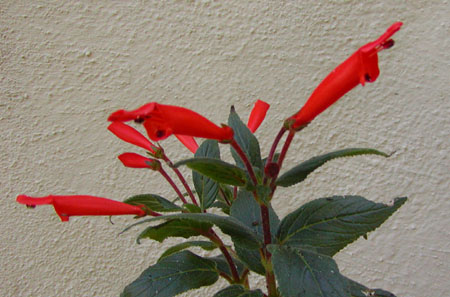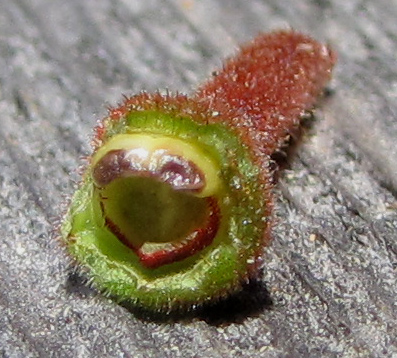This species has leaves which are rather unusual for a sinningia. They are long and narrow, more reminiscent in shape of Seemannia sylvatica (although the leaves are wider when there is abundant water). The dark foliage is particularly attractive.
Sinningia glazioviana is one of the "Galea Group", a cluster of closely related species which all have flowers with an overhanging upper lip, formed by the two uppermost corolla lobes.

A personal note from Frances Batcheller to the then AGGS Registrar, Jimmy Dates, in 1988, described plants grown from seed collected by Mauro Peixoto. "Plant came from Serra de Bocaina, Brazil, but was found growing on the rocks that emerge from a very cool water river. The tubers were just above the water level, being always very wet and completely submerged when the river is high... It is a compact grower and does not have a rest period."
I have not tried growing it completely submerged.
